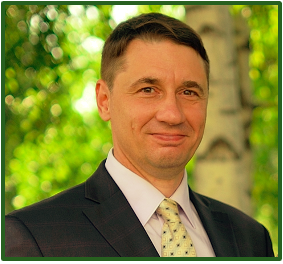© 2022 Dmitry Vladimirovich POPOV
MA&B 2022 – № 2(24)
DOI: https://doi.org/10.33876/2224-9680/2022-2-24/04
Citation:
Popov D.V. (2022) Cifrovaya biomedicina i nadzornyj kapitalizm v logike biopoliticheskogo upravleniya [Digital biomedicine and surveillance capitalism in the logic of biopolitical management], Meditsinskaya antropologiya i bioetika [Medical Anthropology and Bioethics], 2(24).
Candidate of Philosophical Sciences,
Associate Professor,
Head of the Department of Philosophy and Political Science
Omsk Academy of the Ministry of Internal Affairs of Russia
(Russia: Omsk)
https://orcid.org/0000-0002-4587-6351
E—mail: DmitriVPopov@mail.ru
Keywords: biopolitics, biocapitalism, surveillance capitalism, biomedicine, digital biomedicine, human.
Abstract: In the Modern nation-state, a new type of public administration has been developed, involving investments in the population in the name of power, prosperity and security. Medicalization became one of the main tools in the systemically formed biopolitics, which led to the political regulation of “naked life”. In the XXI century, new implications arise from the already formed biopolitical paradigm: “the security state”, “the biosafety state” and “surveillance capitalism”. Google’s open “behavioral surplus” has led to the formation of a digital market for human behavior. “Googlization” is the “Fordism” of the XXI century for the difference that mass production was inclusive, and surveillance capitalism is exclusive and extractive par excellence. Digital biomedicine within the framework of surveillance capitalism is used as one of the resources for digitizing human behavior. Of course, this is only one of the aspects of biomedical technologies that make their undeniable contribution to the preservation and prolongation of human life and health – a market and biopolitical aspect in essence. However, the strategy of surveillance capitalism aimed at the commodification of digitized human behavior by digital giants in the interests of their clients makes digital biomedicine ambivalent. Biomedicine, whose goal is to promote human life, finds itself in the position, on the one hand, of the most important biopolitical investment strategy in the population, and, on the other hand, hostage to the latest biocapitalist imperatives of benefiting from digital surveillance of the individual.
References
Arendt, H. (2000) Vita activa, ili O dejatel’noj zhizni [Vita activa, or About active life], Saint Petersburg: Aleteya.
Delanda, M. (2014) Vojna v jepohu razumnyh mashin [War in the Era of intelligent machines], Yekaterinburg: Cabinet Scientist; Moscow: Institute of General Humanitarian Research.
Foucault, M. (2006) Intellektualy i vlast’: Izbrannye politicheskie stat’i, vystuplenija i interv’ju. Chast’ 3 [Intellectuals and Power: Selected Political articles, speeches and interviews. Part 3], Moscow: Praxis.
Foucault, M. (2011) Bezopasnost’, territorija, naselenie. Kurs lekcij, prochitannyh v Kollezh de Frans v 1977–1978 uchebnom godu [Security, territory, population. A course of lectures delivered at the Collège de France in the 1977–1978 academic year], Saint Petersburg: Nauka.
Grebenshhikova, E. (2016) Proekty uluchshenija cheloveka [Human Improvement Projects], Chelovek, No 5, p. 30–39.
Jarkeev, A.V. (2018) Ontologicheskie osnovanija zla v sovremennom obshhestve: filosofsko-germenevticheskij aspect [Ontological foundations of evil in modern society: Philosophical and hermeneutic aspect], Yekaterinburg; Izhevsk: IFiP UrO RAN.
Kil’djushov, O.V. (2013) Policija kak nauka i politika: o rozhdenii sovremennogo porjadka iz filosofii i policejskoj praktiki [Police as science and politics: on the Birth of a Modern Order from Philosophy and Police practice], Sociological Review, Vol. 12, No. 3, p. 9–40.
Kil’djushov, O.V. (2022) Policejskoe gosudarstvo kak simptom: nemeckaja klassicheskaja filosofija i biopolitika moderna (Gegel’ vs Fihte) [The Police state as a symptom: German Classical Philosophy and Biopolitics of Modernity (Hegel vs Fichte)], Bulletin of the RUDN. Series: Sociology, vol. 22, No 3, p. 503–517.
Kochenov, D. (2021) Grazhdanstvo. Ot ravenstva i dostoinstva k unizheniju i razdeleniju [Citizenship. From equality and dignity to humiliation and separation], Moscow: Eksmo.
Mihel’, D.V. (2019) Biokapitalizm: novye tehnologii, novaja jekonomika, novye formy truda i kontrolja v global’nom mire [Biocapitalism: new technologies, new economy, new forms of labor and control in the global world], Social Sciences and Humanities. Domestic and foreign literature. Series 9: Oriental and African Studies, No 4, p. 25–49.
Polanyi, K. (2002) Velikaja transformacija: politicheskie i jekonomicheskie istoki nashego vremeni[Great Transformation: the Political and Economic Origins of Our Time], Saint Petersburg: Aleteya.
Scott, J. (2019) Anarhija? Net, no da! Shest’ vol’nyh zametok ob avtonomii, dostoinstve, osmyslennom trude i zabave [Anarchy? No, but yes! Six free notes on autonomy, dignity, meaningful work and fun], Moscow: Publishing House “Radical Theory and Practice”.
Zuboff, Sh. (2022) Jepoha nadzornogo kapitalizma. Bitva za chelovecheskoe budushhee na novyh rubezhah vlasti [The Era of Supervisory Capitalism. The Battle for the Human Future on the New Frontiers of Power], Moscow: Gaidar Institute Publishing House..
